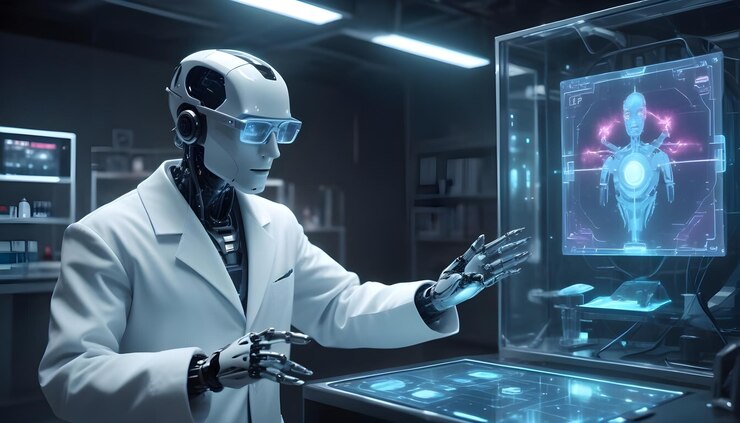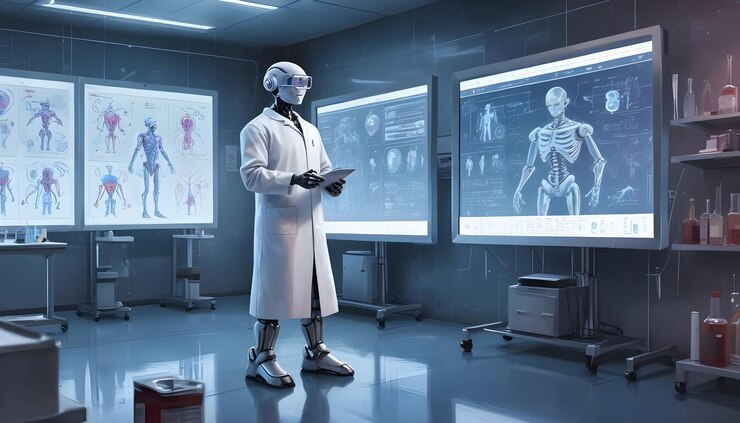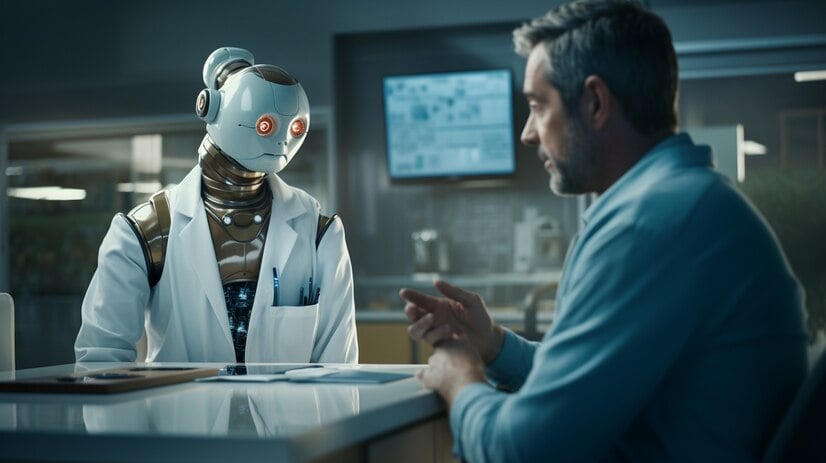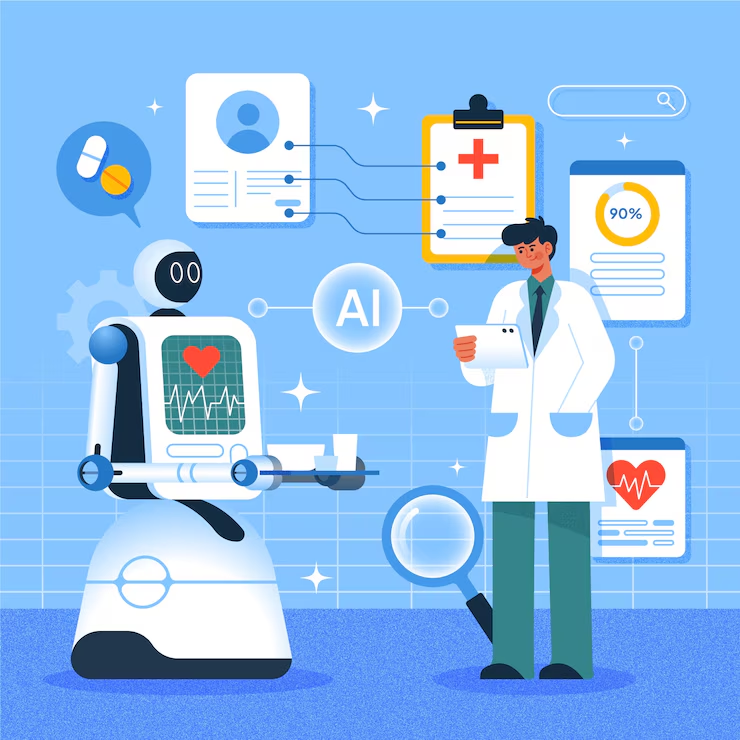AI in Healthcare
The healthcare production is one of the parts where artificial intelligence is taking the most effect. AI in healthcare has the skill to improve patient care, decrease costs, and increase opinion truth. Knowing the uses, benefits, and limits of artificial intelligence is important as we research profounder into the developing field of this study.
The Role of AI in Healthcare
Artificial intelligence in healthcare practices machine education, normal language giving out, and big data analytics to copycat human intelligence. These advancements have allowed machines to measure complex medical data, expect patient results, and backing in decision-making.

Diagnostic Accuracy
To find diseases early, AI systems examine medical pictures from CT, MRI, and X-ray scans. They frequently outperform human specialists in this regard, displaying amazing accuracy. For instance, AI algorithms are faster and more accurate than radiologists at identifying cancerous signals in imaging tests.
Personalized Treatment
AI is essential to customized medicine since it can examine a patient’s genetic composition, way of life, and other aspects. This information aids in customizing care for each patient. AI-driven copies can projection a patient’s response to a given medicine, allowing more effective treatment programs.
Projecting Analytics
AI is useful in calculating patient results and disease rashes. Complete the analysis of large datasets, artificial intelligence (AI) may expect the danger that a patient would develop a sure disease, such diabetes or heart disease. Protective care trusts deeply on this analytical skill, which allows physicians to take action before a patient’s condition gets worse.
Practical Health Assistants
AI-powered practical health advisers offer patients round-the-clock assistance. They are able to place doctor visits, remind patients to take their medications, and respond to studies about health. These helpers promise constant care external of the hospital and improve patient date.
Computing in Surgery
AI-guided mechanical surgery is receiving more and more popular. Robots decrease the dangers related with difficult treatments by helping surgeons with control and care. Artificial intelligence AI-powered robots can transport out gentle surgery with least cuts, speeding up patient recovery and improving results.

Tasks of AI in Healthcare
Although the enormous potential of AI in healthcare. A number of issues need to be resolved before it can be widely used.
Data Privacy Issue
This gives rise to serious worries regarding the security and privacy of data. It is crucial to make sure that patient. Data is shielded from security lapses and unwanted access.
Ethical Considerations
Ethical concerns around AI in healthcare include the possibility of biased algorithms and employment effects. AI use. Wants to be closely regulated. In order to avoid judgment and keep. The importance of human review in decision-making.
Normally Asked Questions
How is AI Healthcare used in problem–solving imaging?
AI is used. In problem-solving imaging. To calculate CT, MRI, and X-ray pictures, between other medical images. Artificial intelligence systems have been qualified to identify designs and differences in these pictures, including cancers, fractures, and other illness displays. More exactly and early than with conformist procedures, the technology can identify conditions. AI, for example, is able to identify cancer’s delicate symptoms, which the human eye can error.
What are the just concerns with AI in Healthcare?
The issue of responsibility for errors made by AI systems also exists. The creation of transparent AI systems and cautious regulation are necessary to overcome these ethical issues.
How can AI improve patient Healthcare?
AI enhances medical care in a number of ways. It uses highly precise analysis of medical data to produce diagnoses that are more accurate.

Decision
AI has enormous potential benefits in healthcare, despite certain obstacles. Artificial Intelligence (AI) will become more and more essential in providing better medical care as technology develops. AI is a strong instrument that will improve healthcare in the future. If it is adopted with rigorous. Ethical and regulatory thought.

Nice article
[…] Amazon is one of the biggest businesses universally, with a hard standing. Their work-from-home jobs proposal good pay, great benefits, and a range of positions. If you want give, Amazon could be a perfect right. […]
Very good article
Very good article
[…] excels in diagnostics. It can identify X-rays and MRIs with great accuracy, among other things. Also, AI dialogue can […]
Excellent